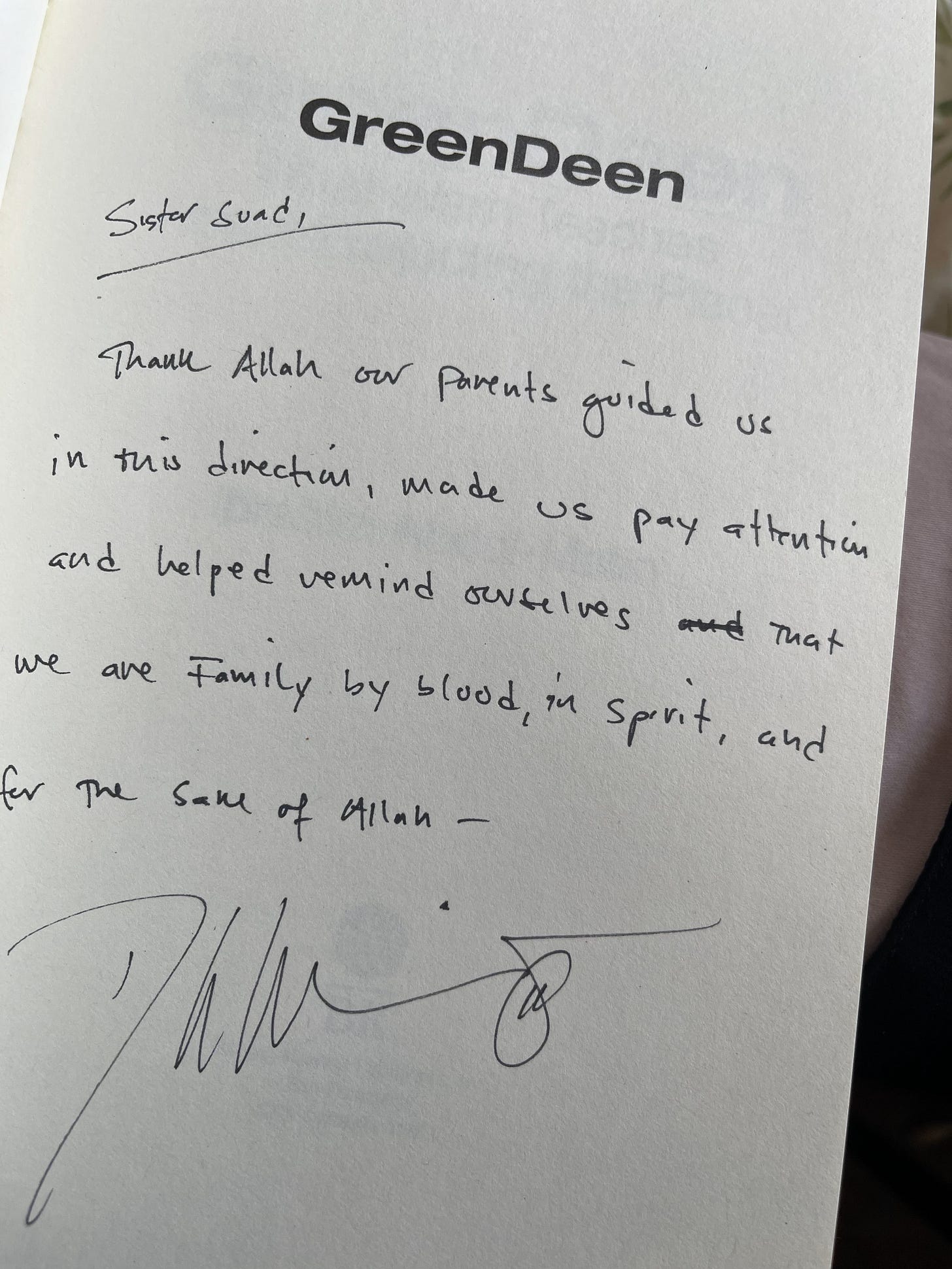On the fifth anniversary of the founding of Sapelo Square, Ibrahim, who was on the organization’s first advisory board, wrote a post titled “Malcolm’s Garden” inviting folks to come check out the “raised garden bed” built by Sapelo “that we will plant in.”
Ibrahim took the garden metaphor from his “absolute favorite part of the Autobiography of Malcolm X [when Malcolm]…talked about his garden growing up.” Ibrahim went on: “Gardens feed us. They bring us joy. They give us roots and a place from which to grow.” And speaking to Malcolm's impact, he wrote: “The work that Malcolm X put into establishing the brick and mortar of the Black Muslim community is legendary.”
Malcolm‘s work is indeed legendary. I remember the day (shout out to Br. Umar Calloway and Zaheer Ali) I saw al-Hajj Malcolm’s name on the deed to Masjid Abdul Muhsi Khalifa, a hometown institution, one of the few remaining, that is precisely the kind of place that Ibrahim was writing about. Yet I think, and I am certain Ibrahim agrees, the legendary work that Malcolm did was even more, to awkwardly extend the metaphor, earthly.
One of the things we (heads like Ibrahim and I) often lament about is how our Black and Black Muslim Institutions have changed. We look at the past - how much our parent’s generation built, how beautiful it was, how we’ve benefited from it and how heartbreaking it is that it’s no longer what it used to be. But one of things I’m coming to realize is that the most important blooms from the gardens seeded by Malcolm and our parents were not the brick and mortar institutions they built but the people they raised.
People like Ibrahim.
The schools and businesses, the naming practices and forms of dressing, the ways of eating and drinking, the healing practices and the ever-present, searing critique of white supremacy and US Empire was in the soil and that’s what made us who we are today. Made Ibrahim the kind of person he grew to be, someone who clearly knew what was in his way, but knew that didn’t determine his way - it didn’t define how he moved in the world. His vision was always bigger than anything the devil could imagine.
Ibrahim has gone back to the soil, literally and figuratively, from which he was planted. And while I’m not really good at garden metaphors, there is something about his return that is teaching me about regeneration. As the Earth keeps giving, so do our loved ones. And I have experienced that regeneration through Ibrahim in my life in ways that I didn’t even anticipate.
Since Ibrahim’s passing I have gone through some serious times and was in need of assistance. It just so happened that Ibrahim’s sister-in-law, Maryam, lives not far from me and offered to help. When asked why, she narrated a tradition of the Prophet Muhamamd (s) in which he was known to have done khidma or service to people whom his first wife Sayyidina Khadija (ra) loved out of his love for her. Maryam explained, “I love Ibrahim and Ibrahim loved Su’ad. So I'm here for whatever she needs.” (I’m not crying, you're crying).
This profound commitment made by Maryam, through Ibrahim, brought me to a new understanding of the concept of sadaqa jariya, which is an Islamic term for the good works that you do while living that continue to benefit you, spiritually, after death. Prior to that moment I had thought of it in more narrow terms: something I did before death had an impact after death - teaching someone to pray, for example. But in this instance, Maryam’s help didn’t come as the consequence of some act Ibrahim did in the past but rather because of who Ibrahim is in my present. He is in the soil and still blooming in my life. A powerful reminder that between us and those who have passed on is not a vast chasm but a thin veil, like sheer curtains and when the wind blows we touch each other through the gaps.
“Gardens feed us. They bring us joy. They give us roots and a place from which to grow.” And gardens do this as long as they get enough water, the right amounts of sun and shade, and as long as they are cared for. So if the most important blooms from Malcolm’s garden are the people, then to follow the tradition that the Prophet laid out for us and that Malcolm championed and that Ibrahim lived, we have to continue to care for each other - we have to continue to tend to the garden.





